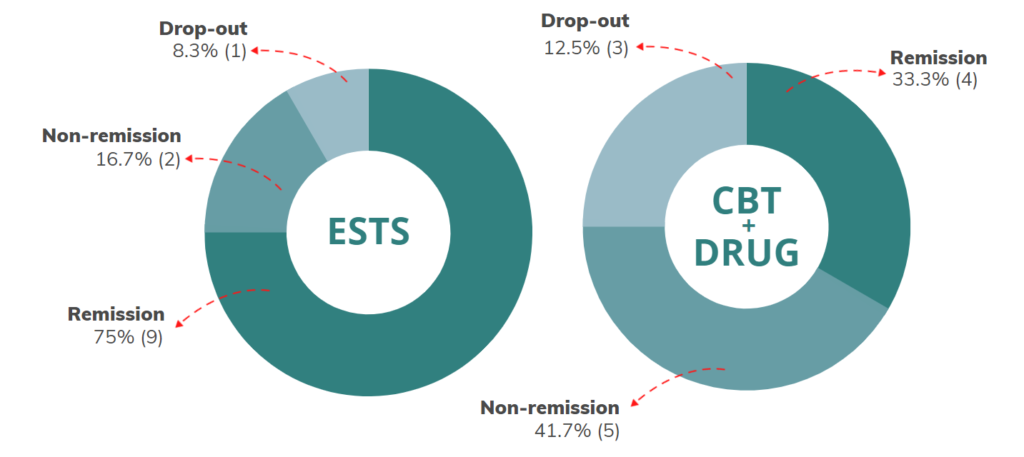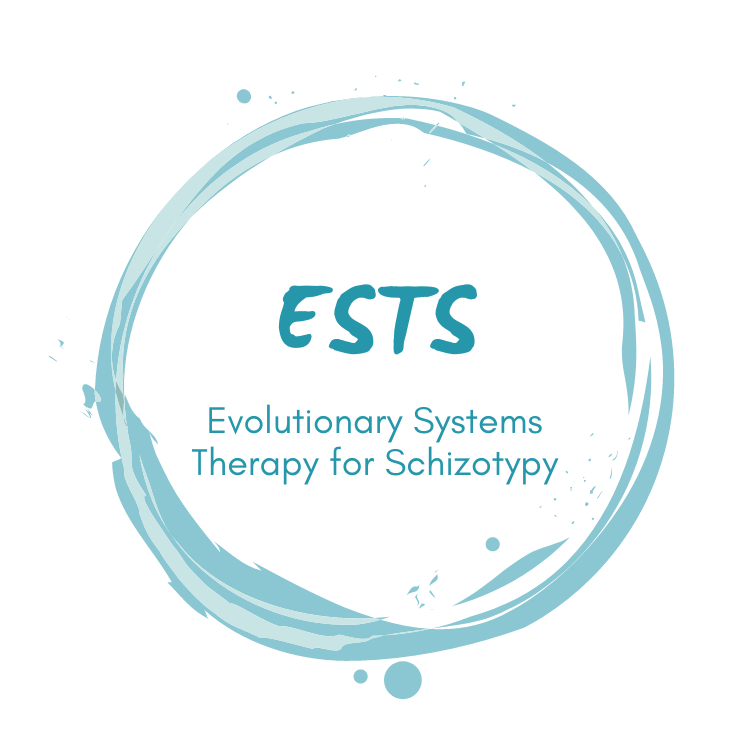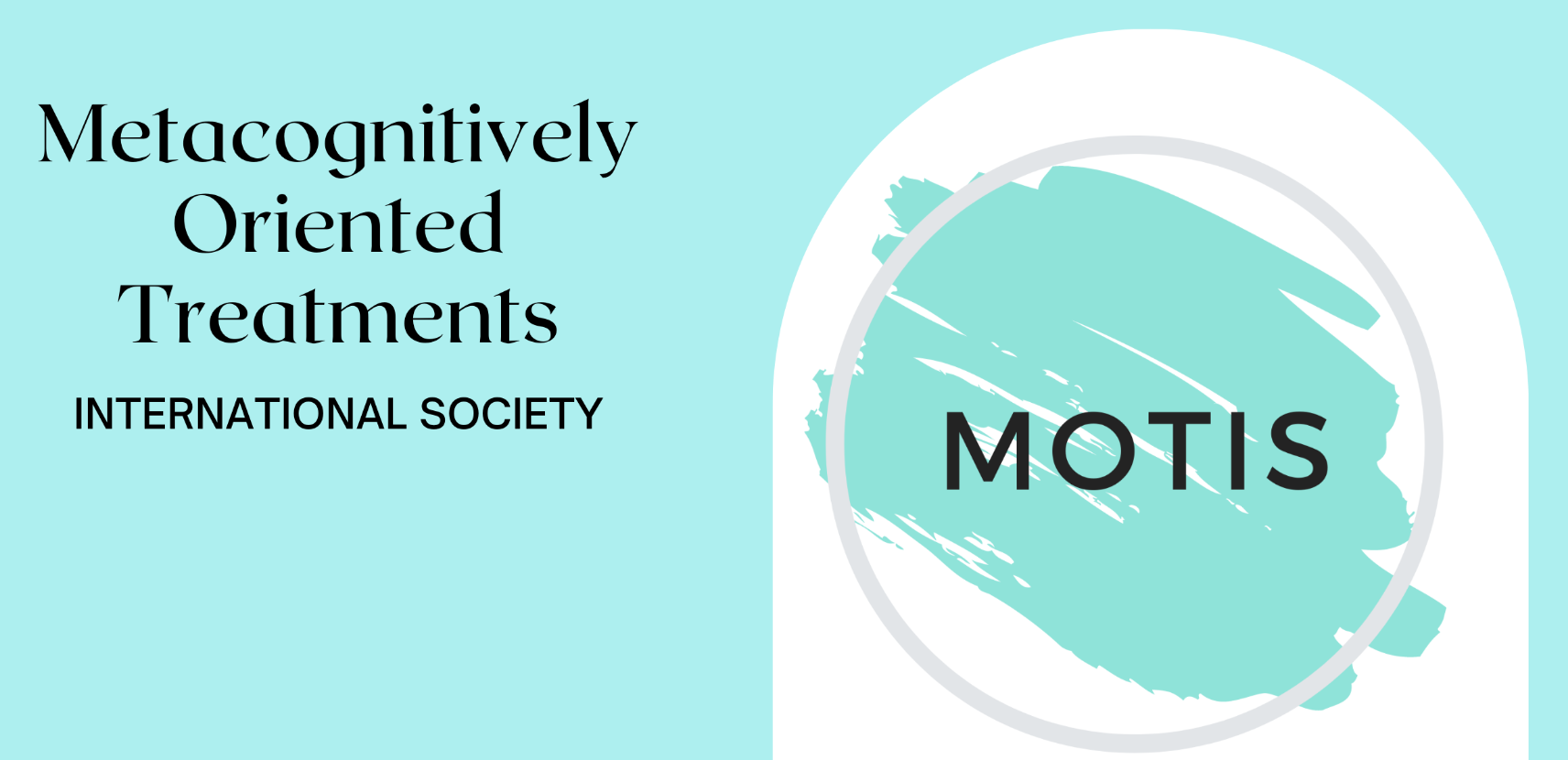For those interested in, here’s my presenation at Evolution 2023, the international congress on the theory of evolution. Martin Brüne and I have recently reviewed existing evolutionary studies on schizotypy and then summarized them for this speech!
A therapy for adolescents with autism and extraordinary skills
Online a paper about a therapy for adolescents with autism and extraordinary skills. The research has been just published by the Journal of Contemporary Psychotherapy and presents a two cases series.
In this study we tested an evolutionarily oriented therapy for those with the so-called savant syndrome, that is the presence of extraordinary skills usually in conjunction with autistic traits. Thus, we recruited two adolescents with this syndrome and offered a 6-month therapy (plus 1-month follow-up).
The proposed therapy is an adaptation of Evolutionary Systems Therapy for Schizotypy, that is an integration of evolutionary psychopathology, metacognitively oriented therapy and compassion focused therapy. This treatment has been originally tested with persons with schizotypal o schizoid traits.
The collected results are promising. Indeed, both the adolescents showed a reliable change in symptomatology and in metacognition, that is the former decreased and the letter increased.
Future studies will hopefully confirm if and how our therapy for autism and extraordinary skills works!
Cheli, S. & Cavalletti, V. (2023). An Evolutionarily Oriented Therapy for Autistic Adolescents with Extraordinary Skills: A Two-Case Series. Journal of Contemporary Psychotherapy. https://link.springer.com/article/10.1007/s10879-023-09586-7
Open -access link by Springer: https://rdcu.be/ddtxS
Adolescents with schizotypal traits: A cases series
In a cases series with five adolescents we tested a treatment for adolescents with schizotypal traits. The intervention was previously designed and tested with adults, namely Evolutionary Systems Therapy for Schizotypy (ESTS).
ESTS is an integrative form of psychotherapy that comprises an evolutionarily based conceptualization with compassion focused and metacognitvely oritented approaches. We recently published the findings of a randomized controlled trial where we showed promising results. 75% of patients remitted from diagnosis and drop-out rates was below 10%.
In this new cases series we suggest how ESTS may be a feasible treatment for adolescents with schizotypal traits. All the partecipants concluded the study and the rate of missing sessions was below 10%. Moreover, 4 out of 5 patients remitted from diagnosis at the end of the schedule 6-month treatment, 1 out of 5 after an extended 9-month intervention.
A post-hoc interview showed how the adolescents described the intervention as effective, substainable and consistent with their goals. By considering how limited informat we have about effective treatments for adolescents with personality pathology (almost nothing for those struggling with schizotypal traits), we are really excited by these findings. Despite the preliminary nature of the study, the proposed model is elegible for larger sample size studies.
Simone Cheli, Gil Goldzweig, Paul H. Lysaker, Francesca Chiarello, Courtney Wiesepape & Veronica Cavalletti (2023) An evolutionarily informed therapy for adolescents with prominent schizotypal traits: a pilot five case series, Psychosis, DOI: 10.1080/17522439.2023.2199325
A large meta-analysis on CFT
A team of international researchers I’m a part of, just concluded and submitted a large meta-analysis on the effectiveness of Compassion Focused Therapy – CFT. CFT is an an evolutionarily oriented psychotherapy developed by Paul Gilbert (one of the co-author of the study). The main focus of the interventions is the soothing system, a mammalian affect regulation system that is usually triggered by social safeness. In humans, this system may be impaired by either external (eg interpersonal criticism) or internal (eg self-criticism) threats.
In this meta-analysis we screened a large number of studies and explored the effectiveness of CFT in improving negative and positive mental health outcomes. Our team, led by Nicola Petrocchi and Cristina Ottaviani, reported a moderate to large effect size in clinical and non-clinical samples.
We also found a relevant heterogeneity, urging scholars in CFT to outline larger-scale higher quality randomized controlled trial. That said, the final analysis of our meta-analysis included 47 RCTs and 7875 partecipants, suggesting how CFT may be considered an effective intervention for a variety of symptoms and disorders.
Fingers crossed while waiting reviwers’ feedbacks!
A randomized controlled trial about ESTS!
Our paper on the randomized controlled trial where we compared ESTS (Evolutionary Systems Therapy for Schizotypy) versus a combination of CBT and drugs is out! Finally, BMC Psychiatry has published it as an open access article.
The trial (ESTS versus CBT: Randomized Trial) reported very encouraging findings! Despite the pilot nature of the study, ESTS (withoud medication) showed at least a non-inferiority in respect to a good psychiatric managment comprising cognitive therapy for personality disorders and psychopharmacological treatment. ESTS reported drop-out rates below 10% and remission from diagnosis in 3 out of 4 patients.

I previously posted updates about the trial, the theoretical foundation of ESTS, and a new confermatory study we are starting in short, but this is very thrilling news! We can now consider ESTS a treatment that is elegible to test as therapy for schizotypy.
First, ESTS is rooted on a specific theoretical model. The clinical manifestations of schizotypy would be the failure in socializing one’s own openness to experience and introversion, leading to an impairment in metacognition and self-soothing.
Second, ESTS is based on a specific protocol comprising four modules: sharing, subjective systemts, intersubjective systems, and consolidation. The first is aimed to share the conceptualization and work on therapeutic alliance, the second and third to promote a mind-body awareness of subjective and interusbjective experience respectively, and the fourth to prevent relapses.
Finaly, a new RCT will compare ESTS with CBT without any mandatory treatment. People will be allowed to access to psychopharmacotherpy, but this will be considered as an exclusion criterion from the study (regardless of the arm they are randomized to)
Below you can find a video-summary of the study!
Cheli, S., Cavalletti, V., Lysaker, P. H., Dimaggio, D., Petrocchi, N., Chiarello, F., Enzo, C., Velicogna, F., Mancini, F., & Goldzweig, G. (2023). A pilot randomized controlled trial comparing a novel compassion and metacognition approach for schizotypal personality disorder with a combination of cognitive therapy and psychopharmacological treatment. BMC Psychiatry, https://doi.org/10.1186/s12888-023-04610-5
Interested in metacognition? MOTIS!
The new website of the Metacognitively Oriented Treatments International Society (MOTIS) has been released. MOTIS is a scientific society aimed to share those interventions that are focused on metacognition.
Metacognition refers to the capacity to understand one’s own mental states and the ones of the others. This emerging and nuanced function is one of the more distinctive features of humanity. Moreover, it is a transdiagnostic and general factor to understand psychopahtology and to orient psychotherapy.
The idea of a society was discussed a few years ago by the actual members of the board of diarector, and now it is a reality! As the secretary of MOTIS I encourage all the scholars and clinicians interested in metacognition to join us. The 2023 membershi is for free!
Visit the webiste: www.mot-is.org
ESTS: A replication study
We are finally ready to start the replication study about Evolutionary Systems Therapy for Schizotypy (ESTS). ESTS is an integrative form of psychotherapy that is specifically tailored on schizotypal traits.
Last year we concluded the first randomized controlled trial (RCT) showing promising results about its effectiveness. Now we have registered the new RCT aimed to confirm these findings and question the limitations we highlighted. Indeed, we are going to increase the sample size of those sperimentally treated with ESTS, and will use cognitive behavioral therapy (CBT) e as an active treatment without any mandatory drug.
In the first RCT the control group accessed to a good psychiatric management comprising of CBT and psychopharnacological drugs. During the post-hoc analysis the interviews indicated how the control group may have been biased by a more stigmatizing approach along the treatment plan. On the one hand, we suppose how ESTS may benefit from an evolutionarily oriented and non-stigmatizing approach to conceptualization. On the other hand, the mandatory drug may have been perceived as stigmatizing or patronizing.
Thus, the new RCT will compare ESTS with CBT without any mandatory treatment. People will be allowed to access to psychopharmacotherpy, but this will be considered as an exclusion criterion from the study (regardless of the arm they are randomized to).
Another interesting difference between the new and the previous RCT will be the secondary outcomes. Despite we collected cases series about feasibility of ESTS in treating different features related to schizotypy, we want to explore the differential effectiveness on psychoticism and detachment. That is, we want to explore the differential effect of ESTS on diverse features of schizotypy, from oddity and disorganization to emotional and social withdrawal.
National Library of Medicine (U.S.). (2023, February- ). Evolutionary Systems Therapy for Schizotypy (ESTS). Identifier NCT05710926 . https://clinicaltrials.gov/ct2/show/NCT05710926
Mindful Compassion for Perfectionism: A new RCT!
Last week I posted about Roz Shafran’s paper on perfectionism, now I’m again here talking about the same topic! Another interesting news, so I hope I won’t bore you! Clinicaltrial.gov (the worldwide database of funded clinical studies) has reviewed and published today our protocol of the new randomized controlled trial (RCT) on Mindful Compassion for Perfectionism (MCP).
As Shafran suggested, there are only three interventions specifically tailored on perfectionistic traits: cognitive behavioral therapy for perfectionism (Shafran et al., 2023), dynamic relational therapy (Hewitt et al., 2019), and MCP (Cheli et al., 2022). MCP is a form of group psychotherapy that integrates the conceptualization model of dynamic relational therapy with experiential techniques informed by or directly derived from Compassion Focused Therapy (Gilbert et al., 2014). Veronica Cavalletti and I developed this integrative intervention with the scientific support of Paul Hewitt.
To date, some case series have confirmed the feasibility of the MCP. This new RCT is aimed at pilot-testing the effectiveness of the proposed intervention. The study is a waiting-list controlled trial. We are going to start recruiting by nex Monday and have the first group as soon as possible!
National Library of Medicine (U.S.). (2023, January- ). Mindful Compassion for Perfectionism (MCP). Identifier NCT00103181. https://clinicaltrials.gov/ct2/show/NCT00103181
Effective treatments for perfectionism
Roz Shafran and colleagues just published an overview of existing effective treatments for perfectionism. They presented their own model and then discussed the existing alternatives.
I was very surprised and happy to see how our protocol was one of the three interventions specifically tailored on perfectionistic traits! In short, Shafran was summarizing evidence and roots of the model with strongest evidence: that is, Cognitive Behavioral Therapy for Perfectionism. This is a tailored form of CBT targeting maladpative beliefs and biases in those struggling with perfectionism. The second model reviewed was the Dynamic Relational Therapy developed by Paul Hewitt and colleagues. Hewitt suggests to consider perfectionism as a set of interpersonal styles comprising of spefici traits, interpersonal and intrapersonal components. Finally, Shafran presented our Mindful Compassion for Perfectionism that integrates the Dynamic Relational Therapy with Compassion Focused Therapy.
As I anticipated, our model is far from being considered evidence-based. We published two cases series (see pubblications) where reporting preliminary evidence for the feasibility of the model, and we are now outlining a randomized controlled trial to better understand its clinical utility. Cavalletti, Hewitt, Flett and I published a first paper introducing the group format and its rationale, and then a second cases series about.
I appreciated Shafran’s recognition, which confirms the importance of specific interventions for specific traits or psychopathological manifestations.
Shafran, R., Egan, S.J., & Wade, T.D: (2023). Coming of age: A reflection of the first 21 years of cognitive behaviour therapy for perfectionism, Behaviour Research and Therapy,
104258. https://doi.org/10.1016/j.brat.2023.104258
Compassion and COVID-19 Pandemic
The last paper of series on the role of compassion during the COVID-19 pandemic has been realeased. The new rsearch suggests that, in a time of elevated distress and shared human suffering such as the pandemic, people from multiple countries and nationalities seem to become more compassionate to self and others and less afraid of, and resistant to, compassion.
During pandemic I joined an international team led by Marcela Matos aimed to explore the role of compassion in adjusting to pandemic. 21 countries were involved and 4 waves of data were collected. First, we showed how all fears of compassion moderated (heightened) the impact of perceived threat of COVID-19 on psychological distress. Second, we confirmed how social connection is key to how people adapt and cope with the worldwide COVID-19 crisis and may facilitate post-traumatic growth in the context of the threat experienced during the pandemic. Finally, our findings highlight the universal protective role of compassion, in particular self-compassion and compas- sion from others, in promoting resilience by buffering against the harmful effects of the COVID-19 pandemic on mental health and social safeness.
The Italian team was led by Nicola Petrocchi and I, and supported by Tages Onlus.
Matos, M., McEwan, K., Kanovský, M., Halamová, J., Steindl, S. R., Ferreira, N., Linharelhos, M., Rijo D, Asano K, Vilas SP, Márquez MG, Gregório S, Brito-Pons G, Lucena-Santos P, da Silva Oliveira M, de Souza EL, Llobenes L, Gumiy N, Costa MI, Habib N, Hakem R, Khrad H, Alzahrani A, Cheli S, Petrocchi N, Tholouli E, Issari P, Simos G, Lunding-Gregersen V, Elklit A, Kolts R, Kelly AC, Bortolon C, Delamillieure P, Paucsik M, Wahl JE, Zieba M, Zatorski M, Komendziński T, Zhang S, Basran J, Kagialis A, Kirby J, Gilbert P. (2023). Improvements in Compassion and Fears of Compassion throughout the COVID-19 Pandemic: A Multinational Study. International Journal of Environmental Research and Public Health, 20(3), 1845. MDPI AG. Retrieved from http://dx.doi.org/10.3390/ijerph20031845










